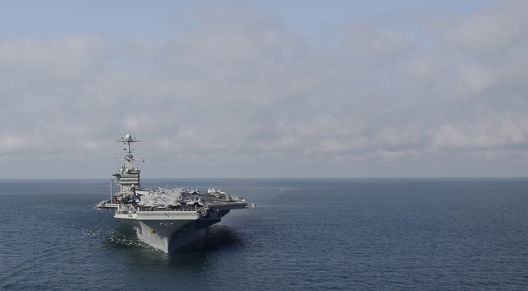 For the last 70 years, the Mediterranean has been quieter than at any other time in its long history . . . Why?
For the last 70 years, the Mediterranean has been quieter than at any other time in its long history . . . Why?
Largely because of American warships. Except for the Turkish invasion of Cyprus in 1974, and occasional violent spillage offshore of the various Middle East wars, the U.S. Sixth Fleet, based in Naples since shortly after World War II, has been able, with its NATO partners, to keep pirates out, aggressors down, and peaceful nations in.
Amid the current violence of the Arab Spring on the shores of North Africa, the Middle East fighting in Gaza and Syria, and Russia’s aggression in Crimea, the Mediterranean nevertheless remains calm. No one today thinks of storming Malta, as did the Ottomans and the Nazis. Sicily is quiet in a way it had never been before 1945. Cretans fear neither Muslim invaders nor German paratroopers. Unlike elsewhere on the seas of the world — the rising tensions in the South China Sea, Iran’s ascendance in the Persian Gulf, the piratical raiding on the Red Sea — there are no active troublemakers on the Mediterranean. . . .
The great European fleets of the past — the Spanish, the French, and the British — are shadows of their former selves. Some of the worst violence in the world today — the civil war in Syria, the bloodletting in Libya, the war in Gaza — takes place on the shores of the Mediterranean, but so far has not spread to sea. . . .
As we dismantle our military, we should remember that history’s natural order of things unfortunately is not peace, but instability and war. Peace, as a character in Plato’s Laws remarked, is a brief “parenthesis.” It occasionally breaks out because aggressors are deterred by the superior military forces of those committed to the general peace — and all nations understand the consequences of weaker aggressive nations’ stirring up trouble. Barack Obama is relearning that ancient lesson as he sends forces back into Iraq against Islamic extremists (whom he once foolishly dismissed as “jayvees”) after he needlessly pulled all deterrent U.S. peacekeepers out of the country and squandered an inherited quiet.
We can see the results of the new lower profile of the U.S. fleet also in the South China Sea, as Japan squares off against China, and South Korea, Taiwan, and the Philippines anxiously watch. As the world heats up, and as the U.S. global deterrent forces erode, there is no intrinsic reason why history’s most contested sea might not be so again. We should remember that when we talk of defense cuts, and before we pull too many American ships out of a maritime intersection where peace has usually been the exception.
NRO contributor Victor Davis Hanson is a senior fellow at the Hoover Institution and the author, most recently, of The Savior Generals.
Image: USS Harry S. Truman in the Mediterranean Sea, Aug. 5, 2013 (photo: Lt. Haraz Ghanbari/US Navy)
